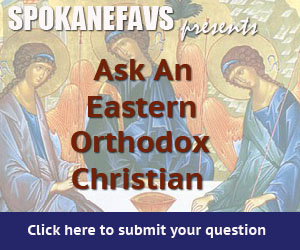What would you like to know about the Eastern Orthodox Christian faith? Submit your question.
How is Eastern Orthodox different than Greek Orthodox? Or is it?

To answer the question, quite simply, Greek Orthodox is Eastern Orthodox. Greek Orthodox is a jurisdiction or a see of the Eastern Orthodox Church. From the time of Christ, the historical Christian Church from the beginning and for the first 1,000 years was essentially one church known as the Orthodox Church.
It consisted of five historic patriarchal centers — four Eastern Orthodox Sees (jurisdictions), Jerusalem, Antioch, Alexandria, Constantinople (Greek Orthodox) and the See of Rome in the West which in 1054 left the other four centers and marked the beginning of Roman Catholic Church. The four Eastern Orthodox centers continued to be united in faith, doctrine, Apostolic tradition, sacraments, liturgies, and services as one, holy, catholic, and apostolic church.
The “Greek” as in Greek Orthodox does not infer ethnicity in this case but implies the jurisdictional authority (that being the “See of Constantinople”) which is the Eastern Orthodox center of Christianity located in a conclave in Istanbul, Turkey.
The bishops of the Orthodox jurisdictions or centers trace their unbroken succession to the very apostles themselves. The Church of Constantinople was founded by St Andrew, the Church of Antioch by St Paul, Church of Alexandria by St. Mark, the Church of Jerusalem by St. Peter and James, the Church of Rome by St. Peter and Paul. After the great schism in 1054, the churches in the East continued to exist as the Orthodox Church (of the East). In later years, other jurisdictions were founded through the missionary activity known the Orthodox churches of Russia, Greece, Serbia and many others.
All the bishops of the Eastern Orthodox jurisdictions, no matter what their titles, are equal in their sacramental office; each bishop may cast only one vote at an ecumenical council, whether he is the Ecumenical Patriarch or simply a bishop. Given this structure, the EOC is conciliar and representative of the whole body of the church.
According to Saint Paul as an example of EOC, in 1 Corinthians 1:2 “To the Church of God which is at Corinth [which is still the same Church that exists today and very much alive and well], to those who are sanctified in Christ Jesus, called to be saints…” The Church at Corinth is EOC whose beliefs are defined by the Nicene Creed.






